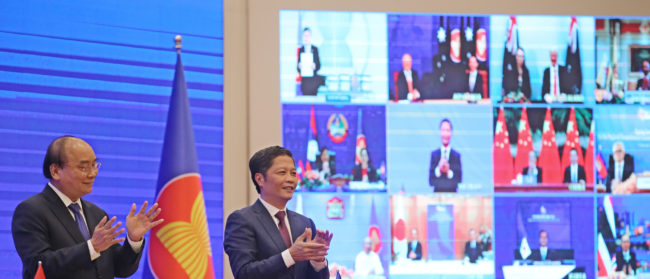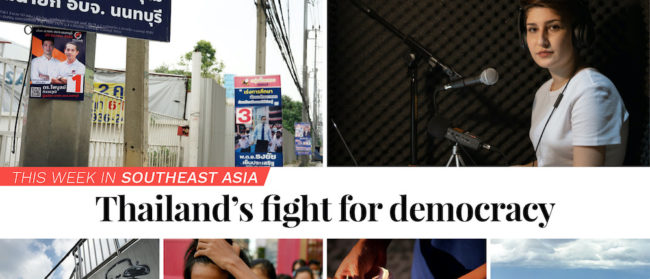As Singapore’s shores become garbage magnet, group leads the clean-up
Surrounded by the world's worst plastic polluters, the shores of ultra-clean Singapore have become a magnet for waste. With their team of beachcombers, Seven Clean Seas are tackling the issue, while also looking for region-wide solutions to the issue of polluted oceans
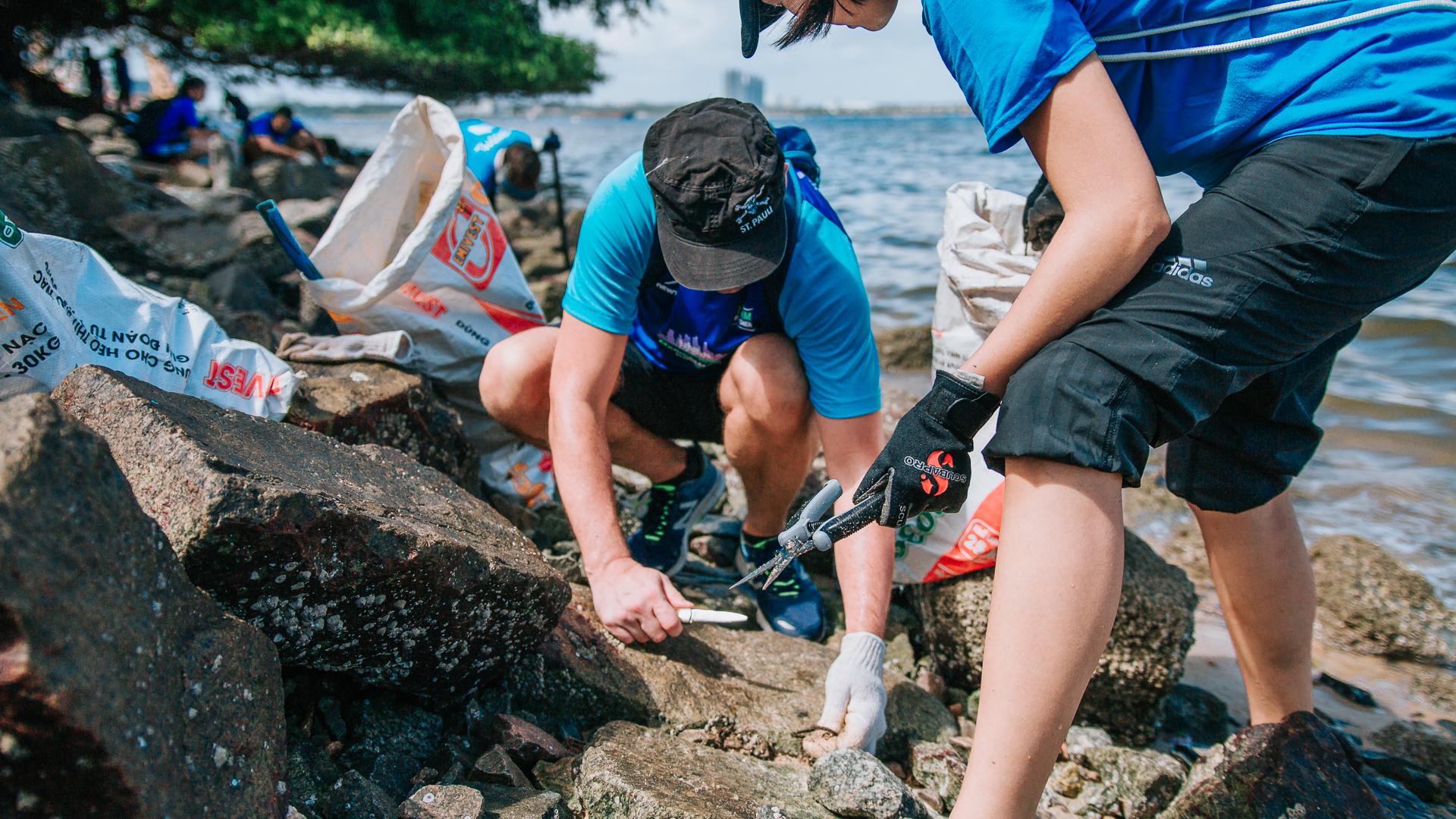
At a “secret” beach off Singapore’s northern coastline on a cool Saturday morning in December, socially distanced groups of some 50 people rove the sandy shores of Sembawang, burlap sacks in hand.
They intently comb through an assortment of washed up debris, finding discarded surgical masks, pill packaging, bottles and bits of styrofoam and a strawberry milk carton. Others emerge with bigger-sized items and unique hauls: Tyres and jerry cans, a plastic toy sword that has seen better days, the remnants of a sofa, partially buried in the sand.
It’s all in a day’s work for the volunteers and team at Seven Clean Seas, a Singapore-based social enterprise on a mission to rid the world’s oceans from plastic pollution. Despite the city-state’s reputation as being one of the cleanest cities in the world, not many realise it’s a hotspot for trash accumulation by virtue of the fact that it is surrounded by the world’s worst plastic polluting countries, said the organisation’s co-founder Tom Peacock-Nazil.
The government makes an effort to clean up tourist beaches, but non-tourist beaches don’t get the same attention, he told the Globe.
“Everyone knows Singapore is a clean city, so they assume that the beaches are as well. But when you take people to places that we know are dirty, they are shocked,” he said.
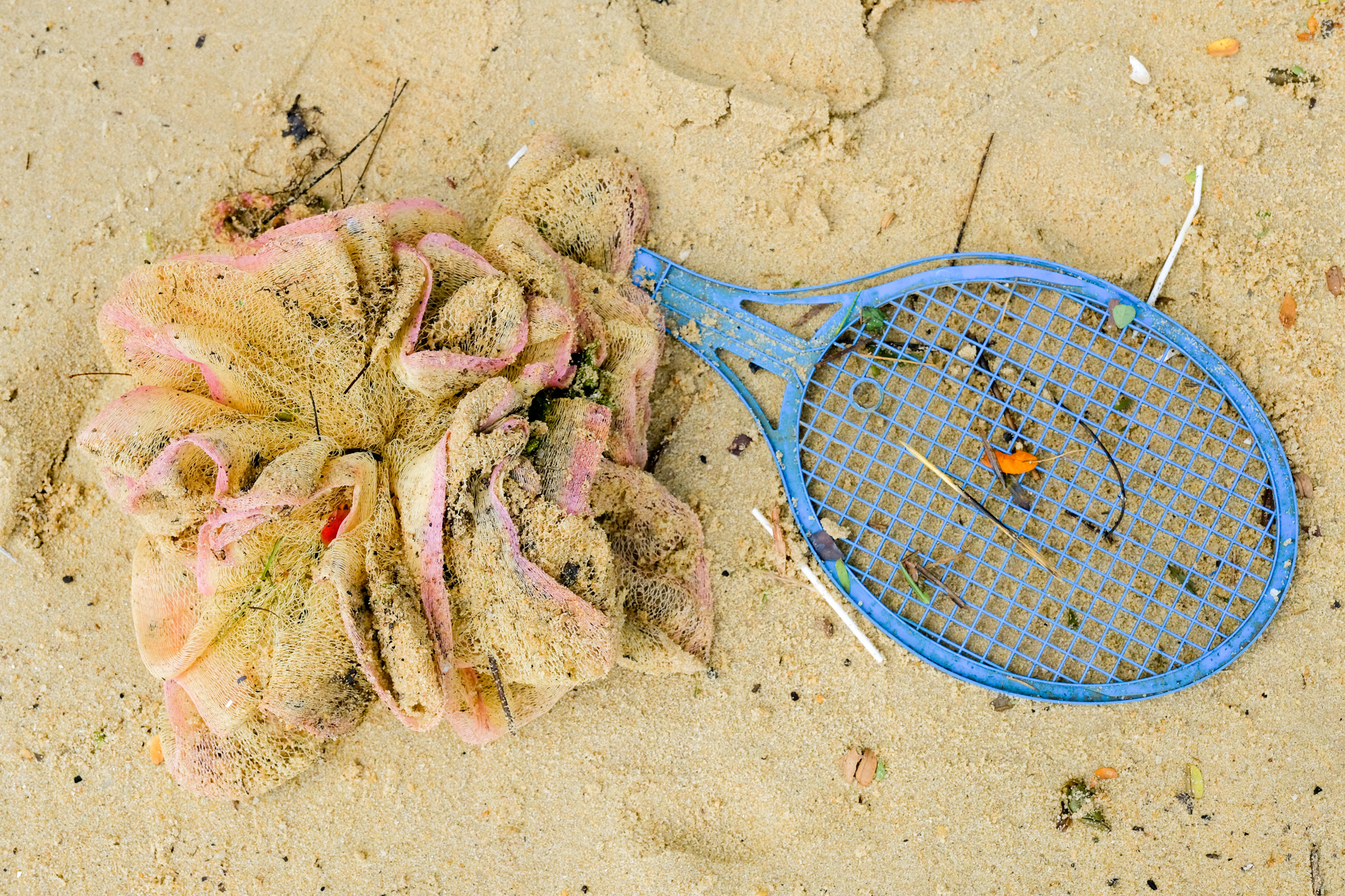
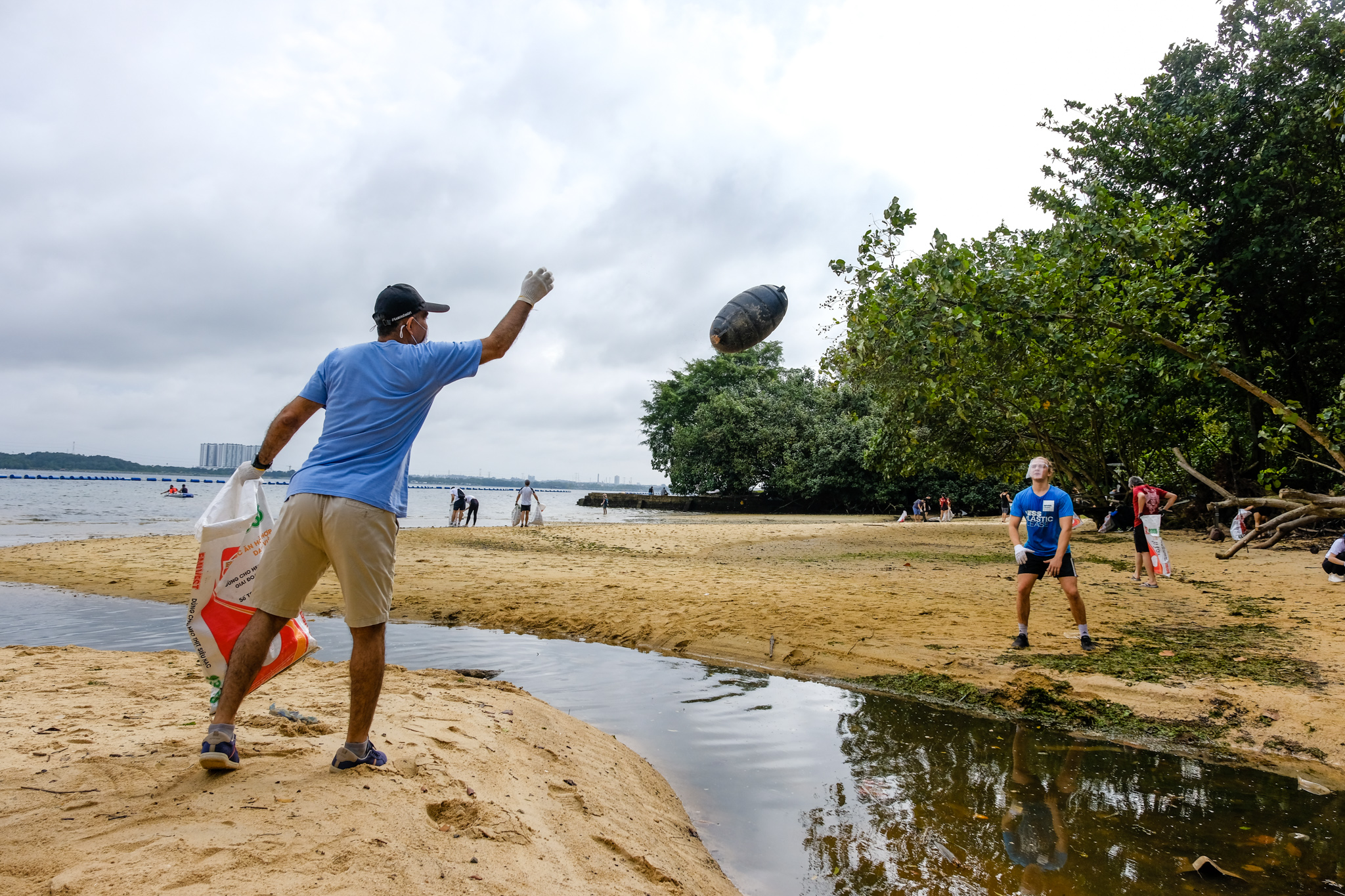
Among the first-time volunteers that day was homemaker Zaliha Rashid and her family. She had seen the call for volunteers on Facebook but almost did not go, until her daughter convinced them to join.
“I’ve watched documentaries about plastic waste and it’s something our teachers tell us in school, but it’s still sad to see so much waste here,” her 11-year-old daughter Nadia Zahra said. Inspired to do something similar at her own school, she added: “I know I’m very young, but still can make a difference with my actions.”
The organisation was first conceived during a vacation with his wife on the Thai island Koh Lipe, famous for its white sand beaches and turquoise waters, said Peacock-Nazil. Overnight, a storm washed up mounds of garbage, turning the pristine beach into a plastic nightmare.
Seeing the amount of pollution shocked the 32-year-old into action. Returning to Singapore, the Briton left his cushy finance job to found Seven Clean Seas in June 2018, together with co-founder Ben Moody, a biological sciences graduate.
In the early days, it drew some 30 volunteers, but that movement “exploded” he said. All of a sudden, companies were looking to engage them for corporate social responsibility efforts, such as to organise beach clean ups and host educational talks and workshops. On average, they would get 200 volunteers, with the biggest turnout being 650 people.
About half of all of the plastic waste that ends up in the world’s oceans comes from just five countries: China, Indonesia, the Philippines, Thailand and Vietnam, according to a 2017 report from environment group Ocean Conservancy.
In June last year, at the 34th Asean Summit in Bangkok, Southeast Asian nations adopted a pact to cut marine waste, a move welcomed by Singapore’s Prime Minister Lee Hsien Loong.
The problem of waste washing up on its shores hits Singapore at different times of the year. Strong winds during the Southwest monsoon pushes huge quantities of unsightly flotsam onto the East Coast Park. Conversely, during the Northeast monsoon, everything in the Johor Straits lands up on Singapore’s northern shores, making it a never-ending battle to remove the waste.
In its time, the group has found a hodgepodge of plastic waste on the beach – ranging from the mundane to the bizarre. Flip flops, plastic aeroplanes, Barbie dolls, toys, motorcycle helmets, sofas. On four or five occasions, volunteers undertook the laborious and painful task of removing spiky horseshoe crabs found entangled in plastic cast nets.
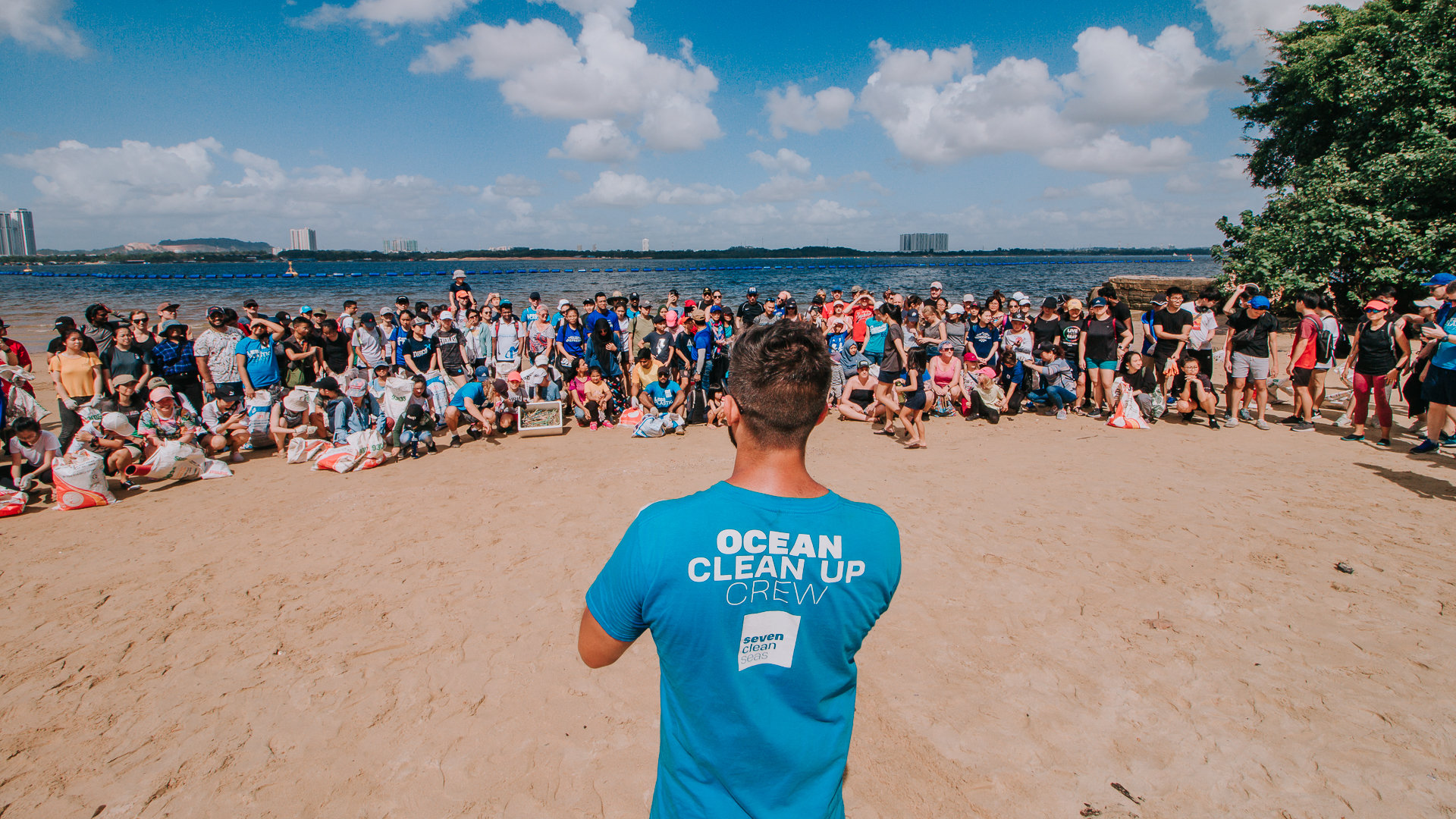
The pandemic put monthly clean-ups on hiatus, but activities have since resumed.
In November, Seven Clean Seas took part in its first-ever Boaters Against Plastic event targeting the remote southern islands of Singapore. Over 100 volunteers were mobilised, travelling out via 21 boats and four jet skis.
Still, the biggest challenge is that countries have differing priorities and resources for waste management, resulting in “dead spots” with huge volumes of plastic pollution, said Peacock-Nazil.
Sam Shu Qin, a marine biologist and the co-founder of Our Singapore Reefs, a group which organises dive clean-ups around Singapore’s southern waters, said it is hard to pinpoint where exactly the plastic trash comes from. It could have come from passing ships or swept by currents from neighbouring countries.
Singaporeans sometimes fail to understand we are a huge import country as well. We can’t always blame others, but we can do our part
Since 2014, plastic has made up 67% of 8362 marine debris items they’ve collected, according to data provided by Our Singapore Reefs. The top items are 1.5 litre water bottles and food wrappers.
But while many cast accusatory glances towards the city-state’s neighbours, Shu Qin also points to Singapore’s huge appetite for plastic.
“When people pick up the trash, they see the labels which are unfamiliar. People always say it’s not our [trash], it’s theirs,” she told the Globe. “But Singaporeans sometimes fail to understand we are a huge import country as well. We can’t always blame others, but we can do our part.”
The two-man team have since expanded their work into the Southeast Asia region. After Singapore, they spearheaded big beach clean-ups in Johor and Selangor in Malaysia.
Lined up next is another ambitious project in Bintan, Indonesia, where the team will build a waste-management facility by the end of 2021. The area was chosen for its remote island location with a thriving marine environment in need of protection. Remote Island locations tend to have the biggest problem with waste management due to a lack of infrastructure, he explained.
The goal is to collect 500 tonnes of environmental, household and industrial plastic waste in the first year of operations, then taken to the facility to be sorted and recycled. It also hopes to improve access to such services for remote communities like Orang Laut (sea people) of the outlying Riau islands in western Indonesia.
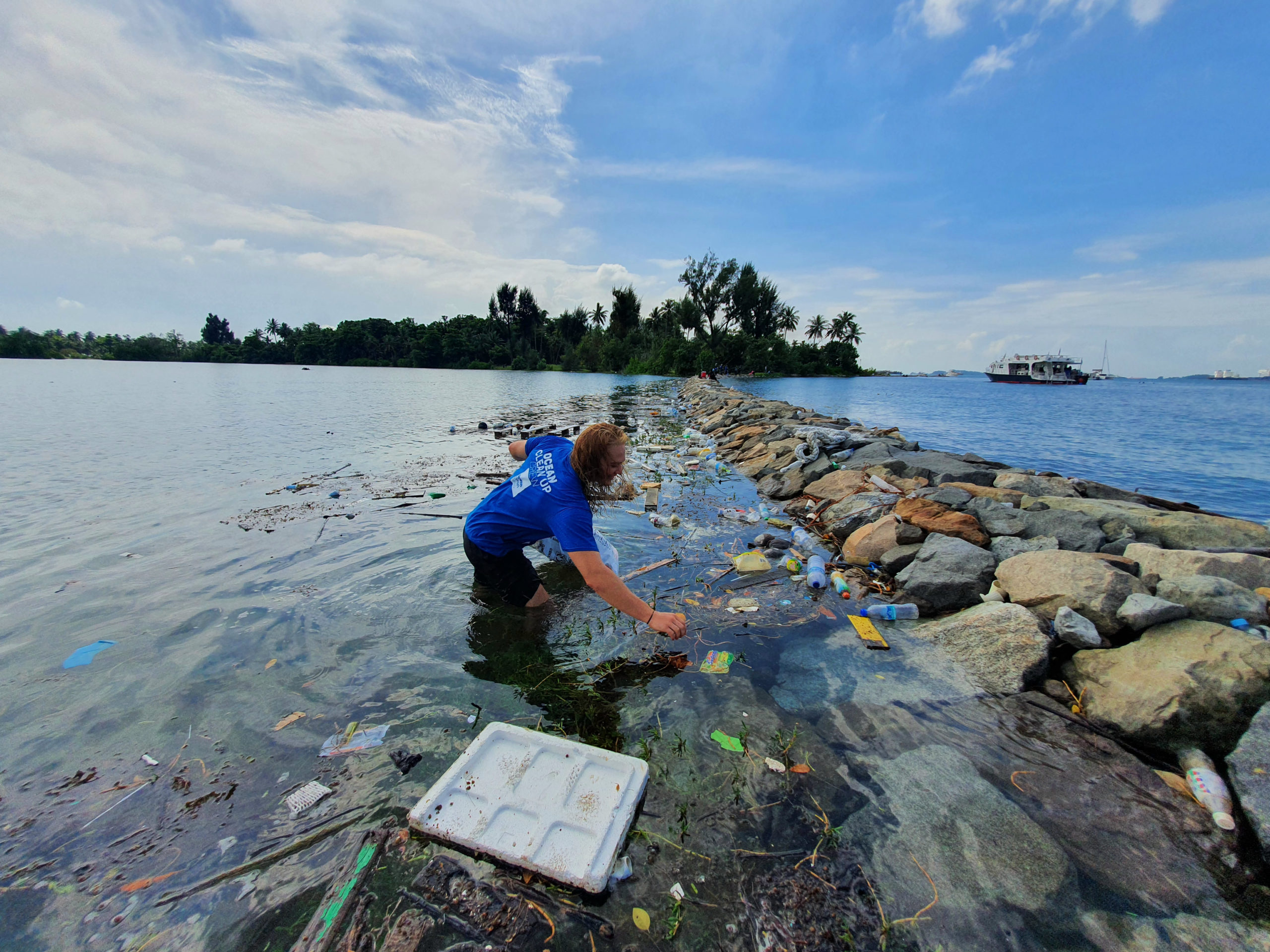
Peacock-Nazil said creating the infrastructure needed to aggregate, segregate and sell plastic waste through this waste-management facility gives plastic value. “When it has a value, people do not let it enter the environment. You create economic and environmental impact at the same time.”
A further issue targeted by the group is that the majority of the world’s plastic waste is first carried from inland rivers before it reaches the oceans. To combat this, Seven Clean Seas developed an innovative low-cost, high-volume river clean-up technology.
By next year, the team will have its first prototype permanently installed at a river canal south of Hanoi, Vietnam. Shaped like a “floating wedge”, any plastic waste will bump into the boom, slide into the system and a conveyor belt will convey it into waste containers. Each unit holds a 1,460,000kg capacity per annum, and will prevent huge quantities of plastic reaching the ocean.
To date, Seven Clean Seas has recovered 80,000kg of trash – barely 10% of its ambitious plan to recover 10 million kg of plastic by 2025.
Despite Singapore being a small nation, it is a “big economic player” with the potential to be a positive ecological influence in the region, said Peacock-Nazil.
“It represents a real opportunity for Singapore to be a leader in waste management, recycling tech and to export that expertise to its neighbours,” he said.
As Singapore embarks on its first Zero-Waste Masterplan, some members of parliament have argued that more can be done to stamp out overconsumption of single-use plastic in Singapore. For now, Seven Clean Seas volunteers like Ivan Ker are quietly doing their bit for the environment as they comb through the city-state’s lesser-seen beaches.
“We’ve seen first-hand how bad the situation has become in the oceans. It’s only fair that we right the wrongs that humans have done to the environment.”
